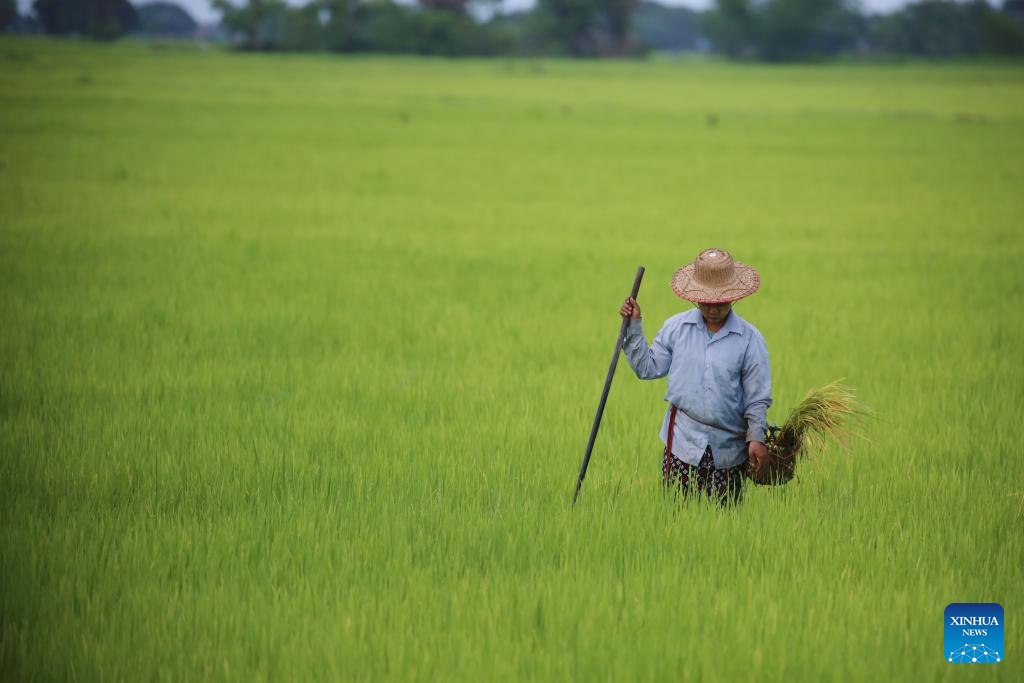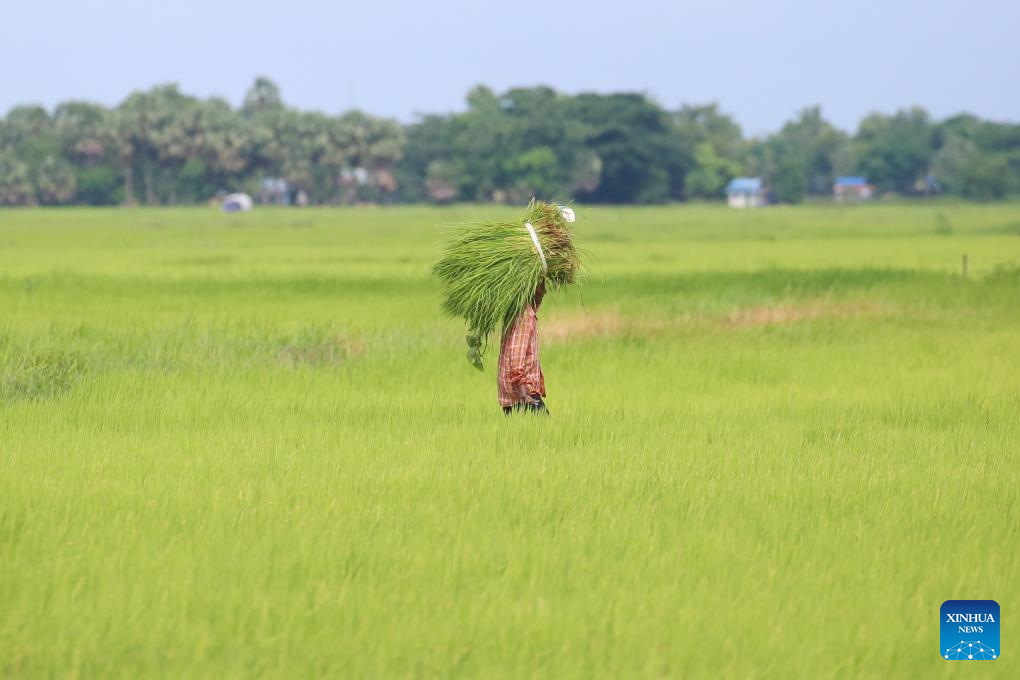
A farmer works in a paddy field at Dala Township in Yangon, Myanmar, July 13, 2023. (Photo by Myo Kyaw Soe/Xinhua)
YANGON, July 13 (Xinhua) -- U Nyo, a 49-year-old farmer from Bogale Township in Myanmar's Ayeyarwady Region, has planned to transplant rice on all 8 acres of his farmland this monsoon season even though it is more costly than broadcasting seeds on rain-fed fields.
"Even an increased yield cannot guarantee profits when paddy prices are low. Consequently, small-scale farmers like us refrained from transplanting in previous years and we used to broadcast seeds on the rain-fed field," said U Nyo.
Motivated by a significant increase in profits from last year's harvest, Myanmar rice farmers began to prepare for growing paddy in rain-fed fields in July.
According to farmers, the paddy price reached approximately 1.6 million kyats per 100 baskets (4,600 pounds), compared to around 600,000 kyats per 100 baskets recorded in the same period of the previous year.
Meanwhile, farmers are also expected to benefit from lower costs as this year's rice plantation season came with decreased input prices.
The price of diesel fuel for agricultural machinery has decreased to 8,000 kyats per gallon, a drop from the 12,000 kyats recorded last year, while fertilizer prices have declined from over 100,000 kyats to 80,000 kyats per bag compared to the previous year, according to farmers.
The transplantation approach, farmers said, will produce higher yields while minimizing crop damage during tidal flooding. The farmers believed that the presence of a leap month in Myanmar's lunar calendar this year would result in higher tidal floods.
However, transplanting paddy requires manual labor for seedling preparation and field transplantation, making it challenging for small-scale farmers with limited financial resources and a labor shortage.
Tint Lwin, a 47-year-old farmer who is managing more than 20 acres of farmland in Bogale Township, said he has decided not to transplant rice this season because there might not be enough workers during the transplantation period.
For the coming years, Tint Lwin said he would still weigh the possibility of paddy transplantation based on the availability of workers during the transplantation period.
The cultivation of rice in Myanmar, including Ayeyarwady Region, is highly vulnerable to the impacts of climate change, such as water drainage, floods, and salt intrusion.
This year, farmers in Rakhine State faced the challenges brought by Cyclone Mocha and struggled to cultivate rice for the monsoon season.
To aid farmers in disaster-affected areas, the Department of Agriculture dispatched 80 power tillers to Rakhine State and provided paddy seeds to farmers at the lowest price, U Myo Tint Tun, deputy permanent secretary of the Ministry of Agriculture, Livestock and Irrigation, told Xinhua on Tuesday.
The official added that the department is also providing technical assistance, plowing services, and irrigation support to the farmers to increase rice production.
Myanmar has set a target of cultivating 14.98 million acres of paddy this year and had already cultivated more than 4 million acres. The regions of Ayeyarwaddy, Yangon, Bago, Mandalay, and Sagaing are the primary areas for rice cultivation in the country.
Myanmar produces approximately 14 million tons of milled rice annually, with around 10 to 11 million tons consumed domestically and a surplus of 2 to 2.5 million tons exported to Asian, European, and African countries, generating export earnings of approximately 800 million U.S. dollars each year, according to the Myanmar Rice Federation. ■

A farmer carries rice seedlings at Dala Township in Yangon, Myanmar, July 13, 2023. (Photo by Myo Kyaw Soe/Xinhua)
